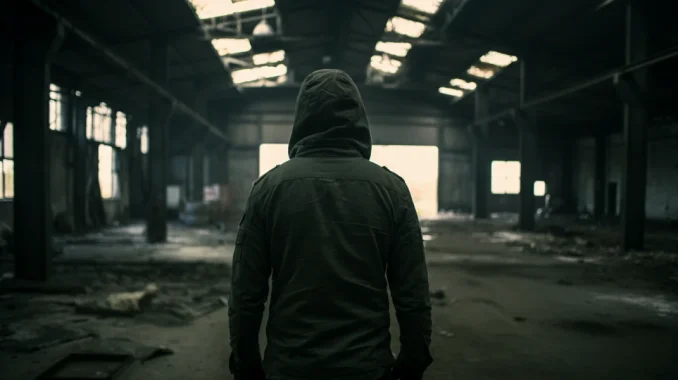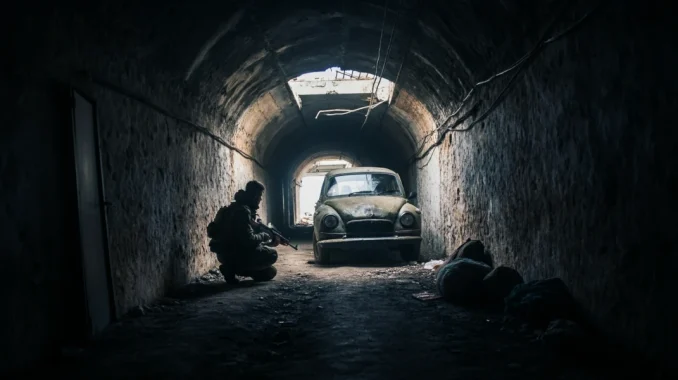In times of war, conflict, or sudden emergencies, panic can be just as dangerous as the threat itself. Whether you are trying to escape danger, find shelter, or make life-saving decisions, the ability to stay calm, think clearly, and act strategically can determine survival.
Stress and fear are natural reactions to danger, but learning to control them can help you make better decisions, avoid costly mistakes, and keep yourself and others safe. Developing a strong survival mindset requires practice, awareness, and the right techniques to handle high-pressure situations effectively.
This guide will teach you how to stay calm, how to make smart decisions under stress, and what mistakes to avoid in crisis situations. The advice here is tailored to civilians in Europe who may be facing conflicts, displacement, or sudden emergencies.

Step 1: Understanding Stress and Its Effects
When faced with danger, the human body reacts instinctively. Understanding how stress works can help you control it before it controls you.
How Stress Affects Decision-Making
- Fight, Flight, or Freeze Response: This is the body’s automatic reaction to danger. While it can be helpful, it can also lead to irrational decisions or complete inaction. Some people may attempt to fight when escape is a better option, while others may freeze, unable to make any decision at all.
- Tunnel Vision: Under stress, people tend to focus on one problem while ignoring others, which can lead to missing important details. For example, in a conflict zone, focusing solely on an exit route might cause you to overlook threats along the way.
- Increased Heart Rate & Shallow Breathing: Your body prepares for action, but if you don’t manage it, it can lead to poor oxygen flow to the brain, making thinking clearly harder. A rapid heartbeat and short breaths can result in impulsive actions instead of rational planning.
- Emotional Overload: Fear, anxiety, and panic can shut down logical thinking, making you more likely to make mistakes. People who allow emotions to take over often make choices that put them in greater danger rather than increasing their chances of survival.
How to Overcome Stress in an Emergency
- Slow Down Your Breathing: Deep, controlled breaths help lower your heart rate and regain focus. One effective method is the 4-7-8 breathing technique: inhale for 4 seconds, hold for 7 seconds, and exhale for 8 seconds. This reduces panic and increases oxygen flow to the brain.
- Assess the Situation First: Before reacting, take a moment to observe, analyze, and prioritize what needs to be done. If you act without assessing, you may move towards greater danger instead of safety.
- Break Problems into Small Steps: Instead of thinking about everything at once, focus on one task at a time. If you need to evacuate, prioritize finding a safe path, then gather essential supplies, then move towards a secure location.
- Remind Yourself of Prior Knowledge: If you’ve trained for emergencies, remind yourself that you are prepared and capable. Even if you haven’t trained, calm thinking alone improves survival chances more than panic does.
- Keep a Mantra: Saying something simple like “Stay calm, think first, act second” can help ground your mind. Repeating a positive phrase keeps the mind focused on solutions instead of fear.
- Visualize a Positive Outcome: Picture yourself safely getting through the crisis. This helps override panic-based thinking and replaces it with action-oriented focus.
Step 2: Making Smart Decisions Under Pressure
The OODA Loop: A Survival Decision-Making Model
Developed for military strategy, the OODA Loop (Observe, Orient, Decide, Act) helps people make quick and effective decisions.
- Observe – Look around and gather information. What is happening? Who is around? Where is the safest place? Observation means actively scanning the environment rather than reacting on impulse.
- Orient – Adjust your thinking based on your surroundings. What threats exist? What resources do you have? Are there safe escape routes, shelter, or allies nearby?
- Decide – Choose the best possible action. Should you hide, run, fight, or wait? Consider both short-term and long-term outcomes of your decision.
- Act – Execute your plan with confidence. Indecision wastes time, so once you’ve made a choice, commit to it fully.
Repeating this cycle keeps you focused and adaptable in any crisis. The faster you process information, the more prepared you’ll be to react appropriately.
Prioritizing Decisions in Emergencies (The Rule of 3s)
When overwhelmed, focus on the most critical needs first:
- 3 minutes without air – Ensure you are in a breathable environment.
- 3 hours without shelter – In extreme cold or heat, prioritize finding or making shelter.
- 3 days without water – Dehydration can be fatal, so locate water sources.
- 3 weeks without food – While important, food comes last after shelter and water.
This rule helps prevent panic-driven decision-making by reminding you what truly matters for survival.
Step 3: Mental Strategies to Stay in Control
Training Your Mind for Survival
- Visualize Success Before It Happens: Picture yourself handling difficult situations calmly and effectively. Visualization helps rewire the brain to react better under stress.
- Create Simple Emergency Plans: Know where you’ll go, what you’ll do, and what supplies you need before a crisis happens. Writing down a plan reduces hesitation in real situations.
- Practice Problem-Solving Under Pressure: Simulate high-stress situations (e.g., navigating a city without a phone, finding water sources). The more experience you have in uncertain conditions, the more prepared you will be.
- Build Emotional Resilience: Learn to accept fear as normal, but not let it control you. Accepting that stress will happen makes it easier to handle.
- Use the Power of Routine: People under stress fall back on habits. Build good emergency habits (checking exits, securing food supplies, staying aware) so they become automatic in a crisis.
Building Confidence in High-Stress Situations
- Focus on Small Wins: Completing small tasks (finding a safe route, locating shelter) helps build confidence. Each success reinforces calm thinking.
- Use Positive Self-Talk: Instead of “I can’t handle this,” tell yourself, “I’ve prepared for this. I know what to do.” Changing the way you think changes how you act.
- Keep Moving: If in danger, even small actions (checking exits, preparing supplies) prevent panic from taking over.
- Train with Others: Practicing survival skills with friends or family increases your readiness. Team-based survival is often more successful.
Conclusion: Be Prepared, Stay Smart
A strong survival mindset is just as important as physical skills. Your ability to stay calm, analyze situations, and make good decisions can determine whether you survive an emergency or crisis.
Final Recommendations
- Train your mind before a crisis happens – practice stress management and decision-making skills.
- Create emergency plans for different scenarios (evacuation, shelter, food, water, defense).
- Stay flexible and adaptable – rigid thinking can get you stuck.
- Trust your training – the more you prepare, the more natural survival decisions will feel.
- Never give up – mindset can be the biggest difference between those who survive and those who don’t.
Survival is as much mental as it is physical. Strengthen your mindset today so that if the worst happens, you will be ready.




